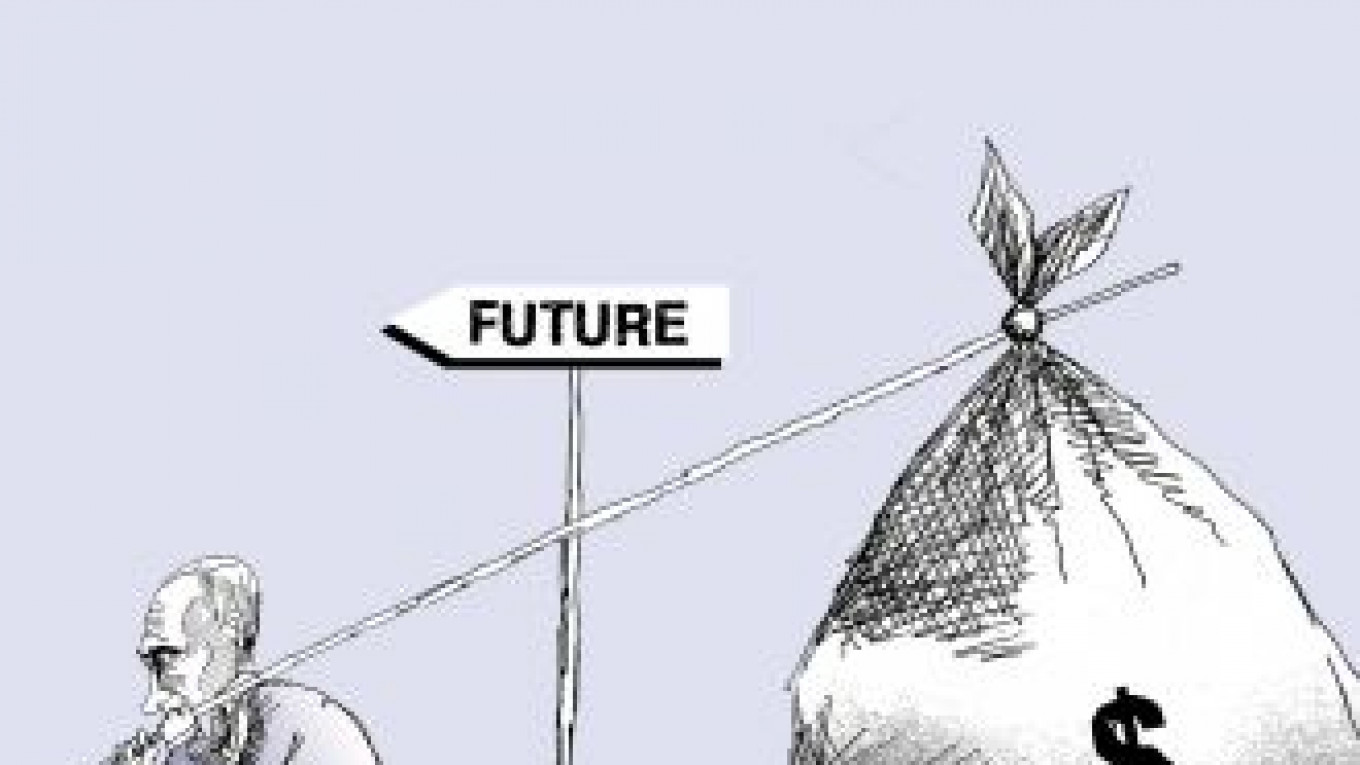Many Russian and foreign commentators rushed to describe Prime Minister Vladimir Putin’s annual report in the State Duma on Wednesday as the start of his presidential campaign.
It wasn’t.
It would be unwise for Putin to announce his presidential ambitions now because the outcome of the March 2012 vote would then become clear to everyone. President Dmitry Medvedev would turn into a lame duck, and many of his important domestic and foreign initiatives would be frozen until Putin, who has divergent views on Russia’s role in global and home affairs, assumed power.
Moreover, if Putin started his campaign now, he would give time to those with opposing views and in Medvedev’s camp to consolidate their efforts.
Even if Putin’s four-hour speech and question-and-answer session aimed to kick-start his campaign, the manifesto he delivered hardly makes for a substantive campaign platform.
Judging from his speech, Putin’s main recipe for the country’s development is to pour more money into strategic sectors and social programs. But Russians have already seen trillions of rubles earmarked for these purposes — and with few results except increased corruption.
A politician who makes fighting corruption and increasing transparency the center of his political platform is bound to attract public sympathy, especially among the intelligentsia.
The popularity of Alexei Navalny, the country’s leading whistleblower on corruption and a crusader for minority shareholder rights, testifies to this. Medvedev understands this principle as well, making corruption and government reform his two main objectives.
Still, Putin’s address to the Duma, which was largely dedicated to the nation’s future development rather than a public accounting for his work last year as prime minister, provides a strong clue to what the country might expect if Putin decides to run for president in 2012.
Intentionally or not, Putin did not address the most critical issues — corruption and poor governance — in his speech. On the contrary, he effectively spoke against reforms in the government, saying the country needs “decades of stable and calm development without being thrown back and forth by ill-conceived experiments” based on liberal models.
Several commentators critical of the Kremlin have coined the term of “bablism” (from “bablo,” a colloquial Russian term for money) to describe Putin’s political philosophy. They say Putin believes that any political goal can be achieved by throwing money at it and that a thirst for money is the major driving force for all human behavior. Judging from Putin’s address, it seems that these commentators were not completely wrong in their assessment.
It is disappointing and disturbing that Putin, who as Russia’s national leader almost single-handedly decides the fate of the country, doesn’t understand that funneling billions of rubles from the federal budget through corrupt and ineffective officials will not help achieve his ambitious goals. This will only lead to a feeding trough for bureaucrats and an increase in social disparity and discontent.
Without reforms, Russia won’t have the decades that Putin spoke about for development. With Putin in power, these reforms are highly unlikely.
A Message from The Moscow Times:
Dear readers,
We are facing unprecedented challenges. Russia's Prosecutor General's Office has designated The Moscow Times as an "undesirable" organization, criminalizing our work and putting our staff at risk of prosecution. This follows our earlier unjust labeling as a "foreign agent."
These actions are direct attempts to silence independent journalism in Russia. The authorities claim our work "discredits the decisions of the Russian leadership." We see things differently: we strive to provide accurate, unbiased reporting on Russia.
We, the journalists of The Moscow Times, refuse to be silenced. But to continue our work, we need your help.
Your support, no matter how small, makes a world of difference. If you can, please support us monthly starting from just $2. It's quick to set up, and every contribution makes a significant impact.
By supporting The Moscow Times, you're defending open, independent journalism in the face of repression. Thank you for standing with us.
Remind me later.






